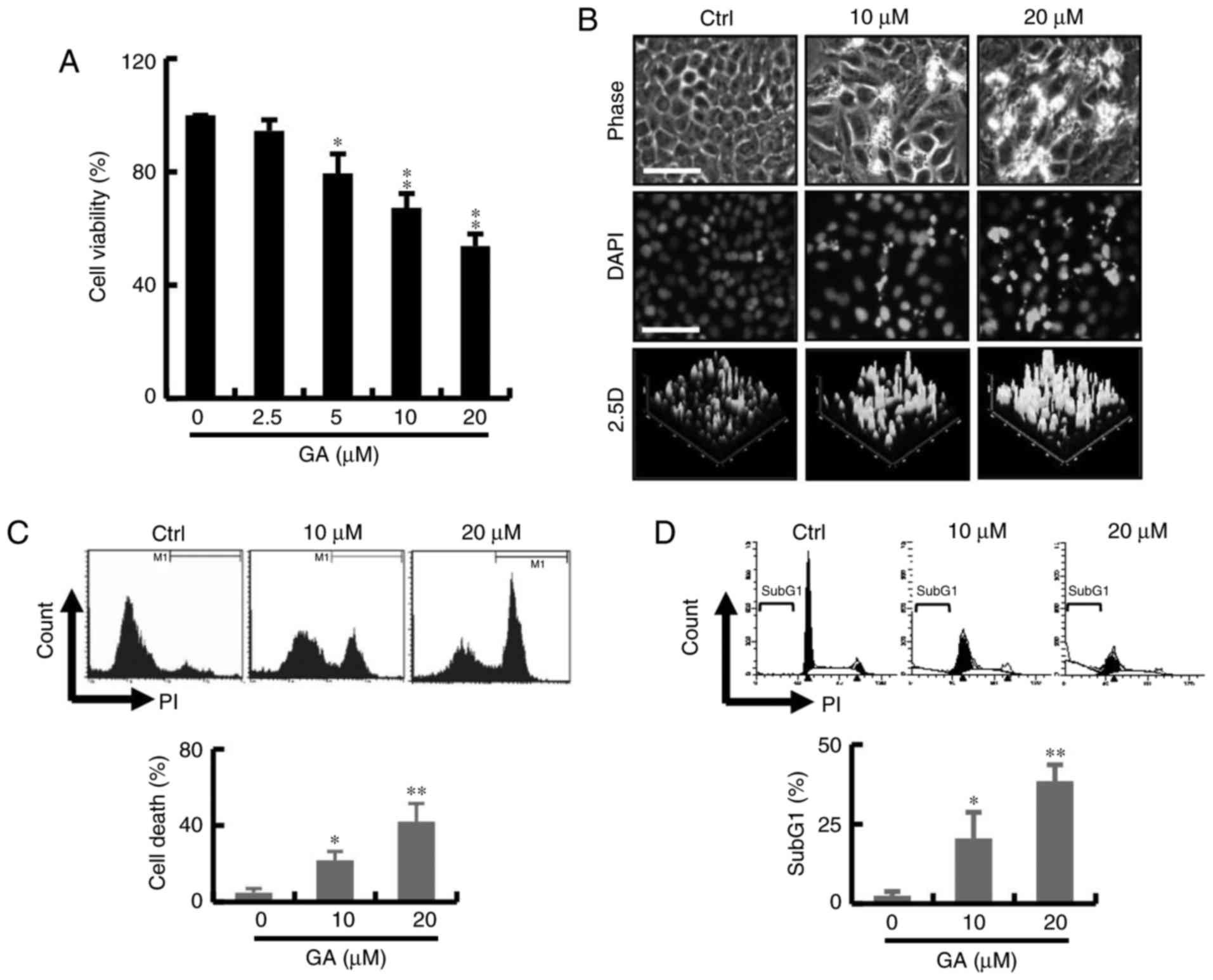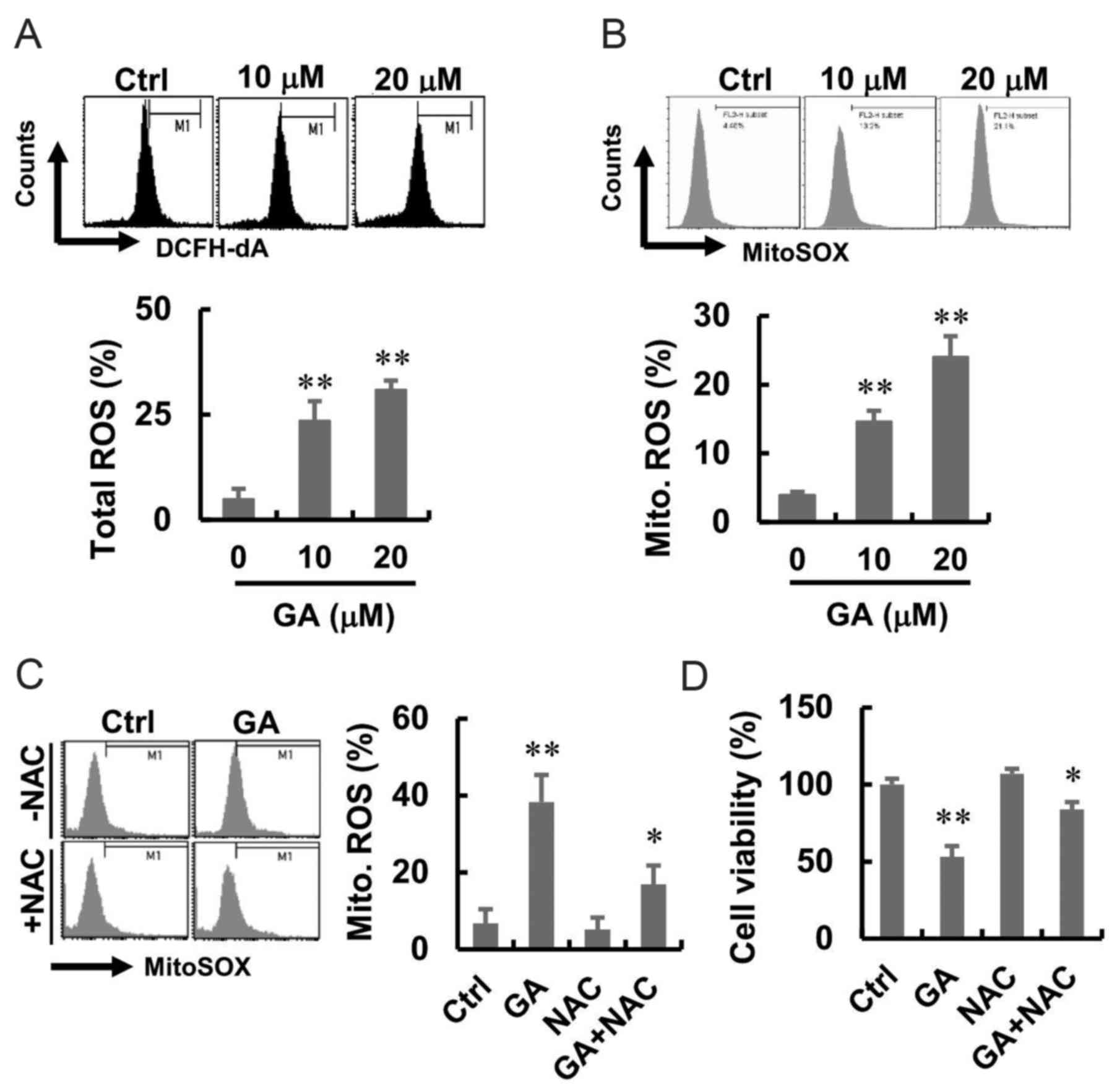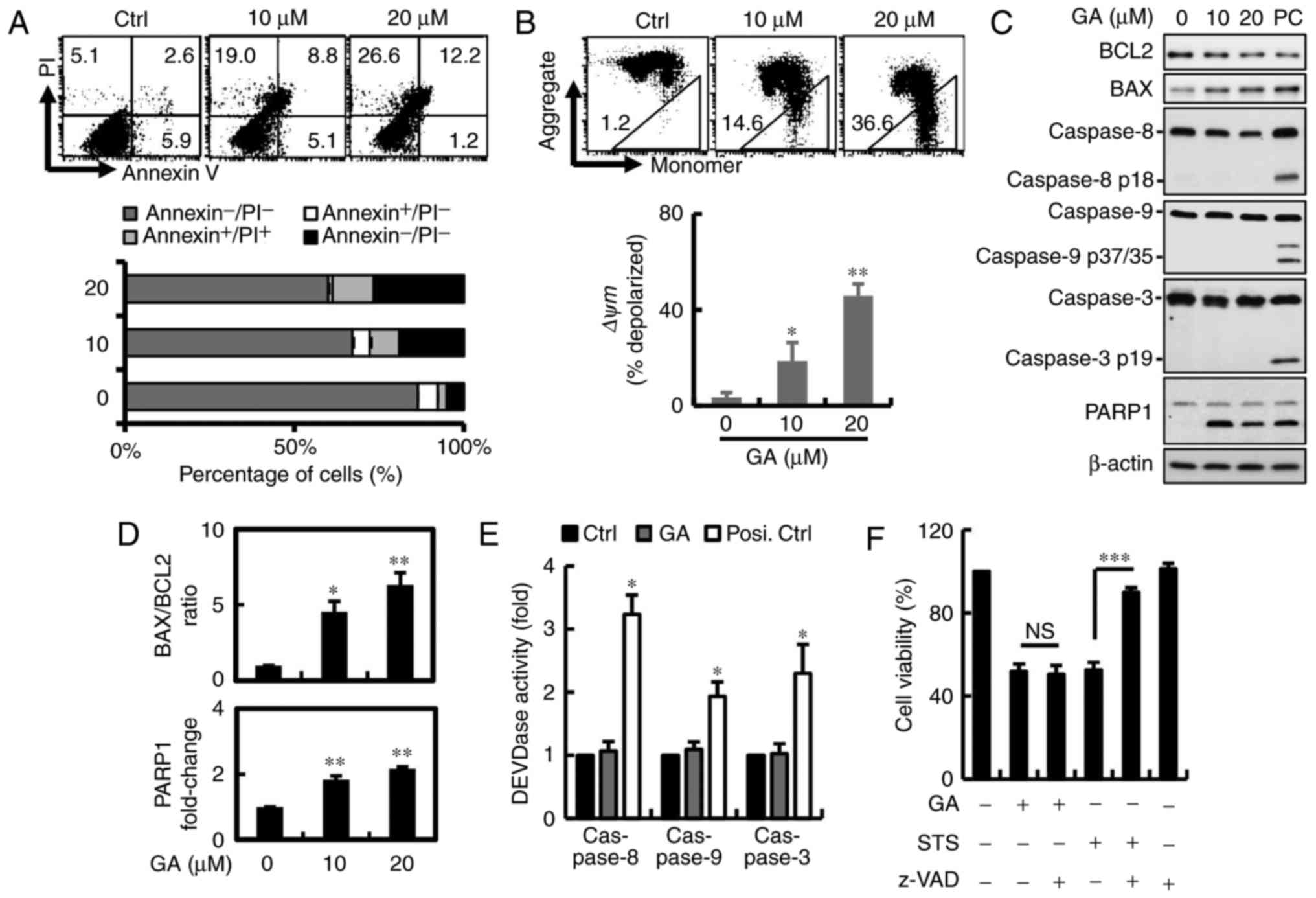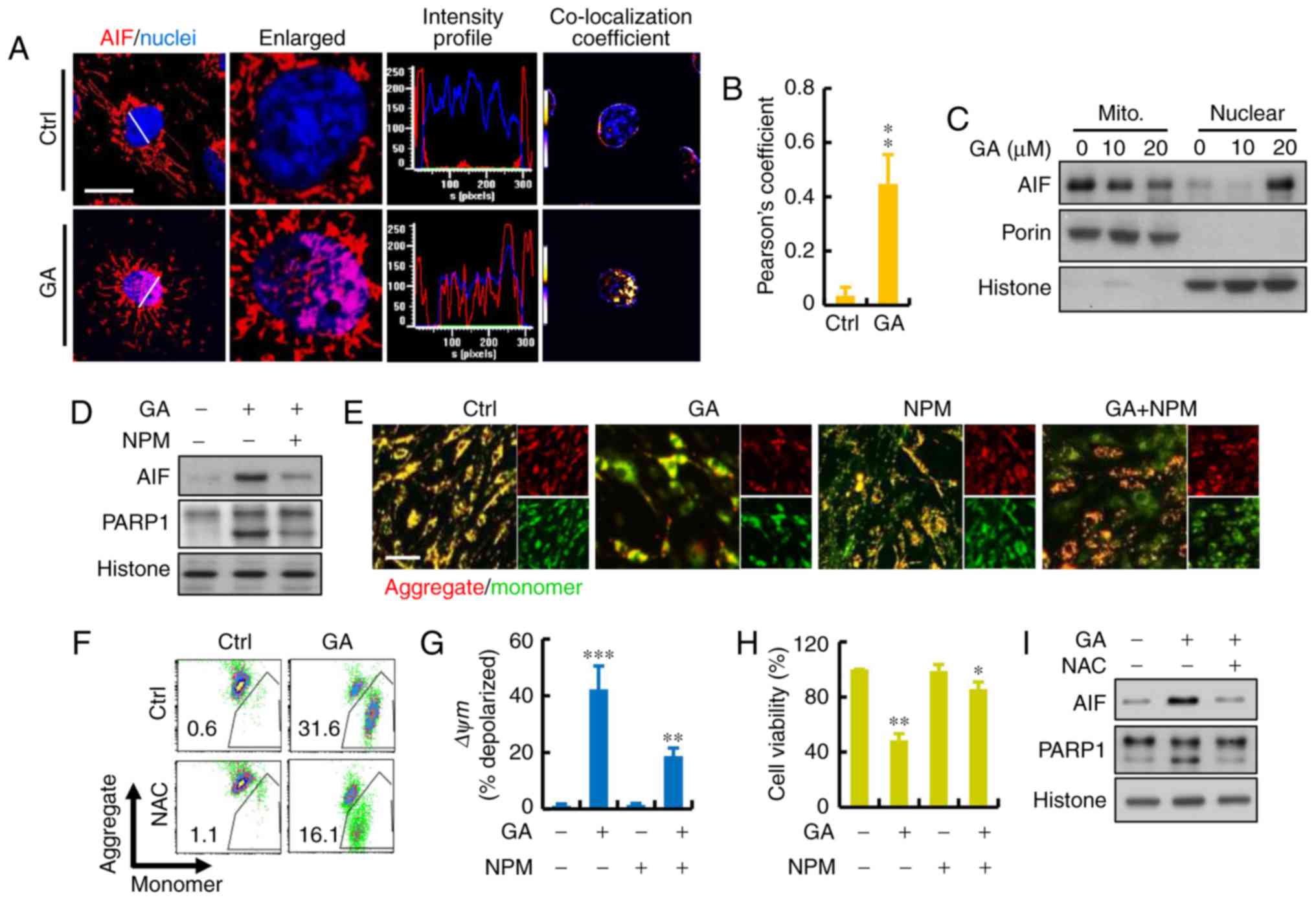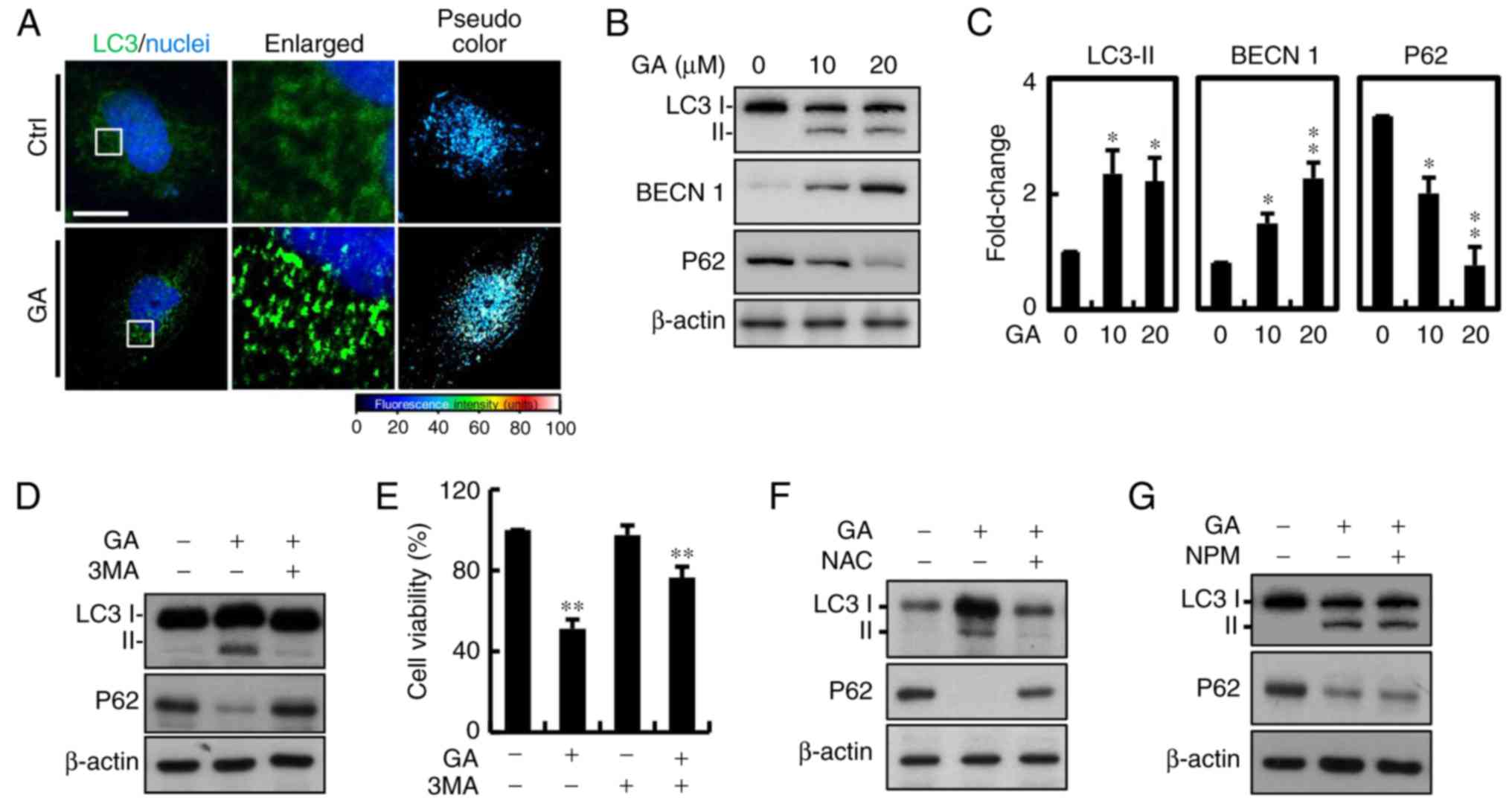|
1
|
Ertas IE, Sayhan S, Karagoz G and Yildirim
Y: Signet-ring cell carcinoma of the breast with uterine metastasis
treated with extensive cytoreductive surgery: A case report and
brief review of the literature. J Obstet Gynaecol Res. 38:948–952.
2012. View Article : Google Scholar : PubMed/NCBI
|
|
2
|
Novakovic S, Hocevar M, Zgajnar J, Besic N
and Stegel V: Detection of telomerase RNA in the plasma of patients
with breast cancer, malignant melanoma or thyroid cancer. Oncol
Rep. 11:245–252. 2004.PubMed/NCBI
|
|
3
|
A new therapy standard in metastatic
breast cancer - gemzar/paclitaxel. Longer survival by optimized
combination therapy. Krankenpfl J. 42:2352004.(In German).
PubMed/NCBI
|
|
4
|
Engel J, Ludwig MS, Schubert-Fritschle G,
Tretter W and Hölzel D: Cancer prevention and the contribution of
cancer registries. J Cancer Res Clin Oncol. 127:331–339. 2001.
View Article : Google Scholar : PubMed/NCBI
|
|
5
|
Stickeler E: Prognostic and predictive
markers for Treatment Decisions in Early Breast Cancer. Breast
Care. 6:193–198. 2011. View Article : Google Scholar : PubMed/NCBI
|
|
6
|
Andergassen U, Kölbl AC, Mumm JN, Mahner S
and Jeschke U: Triple-negative breast cancer: New therapeutic
options via signalling transduction cascades. Oncol Rep.
37:3055–3060. 2017. View Article : Google Scholar : PubMed/NCBI
|
|
7
|
Rakha EA, El-Sayed ME, Green AR, Lee AH,
Robertson JF and Ellis IO: Prognostic markers in triple-negative
breast cancer. Cancer. 109:25–32. 2007. View Article : Google Scholar : PubMed/NCBI
|
|
8
|
Hoge AF, Asal N, Owen W and Anderson P:
Histologic and staging classification of breast cancer:
Implications for therapy. South Med J. 75:1329–1334. 1982.
View Article : Google Scholar : PubMed/NCBI
|
|
9
|
Bazel S, Ferry K, Shoarinejad F,
Laurykleintop L, Lange M, Tachovsky T, Longo S, Tucker S and
Alhadeff J: Analysis of breast-tissue cathepsin-d isoforms from
patients with breast-cancer, benign breast disease and from normal
controls. Int J Oncol. 5:847–853. 1994.PubMed/NCBI
|
|
10
|
Wu S, Dahut WL and Gulley JL: The use of
bisphosphonates in cancer patients. Acta Oncol. 46:581–591. 2007.
View Article : Google Scholar : PubMed/NCBI
|
|
11
|
Sopkova V and Mechl Z: Cisplatin
(platidiame) in the treatment of patients with disseminated breast
cancer. Vopr Onkol. 32:36–38. 1986.(In Russian). PubMed/NCBI
|
|
12
|
Kolacinska A, Chalubinska J, Zawlik I,
Szymanska B, Borowska-Garganisz E, Nowik M, Fendler W, Kubiak R,
Pawlowska Z, Morawiec Z, et al: Apoptosis-, proliferation, immune
function-, and drug resistance-related genes in ER positive, HER2
positive and triple negative breast cancer. Neoplasma. 59:424–432.
2012. View Article : Google Scholar : PubMed/NCBI
|
|
13
|
Conley SJ, Gheordunescu E, Kakarala P,
Newman B, Korkaya H, Heath AN, Clouthier SG and Wicha MS:
Antiangiogenic agents increase breast cancer stem cells via the
generation of tumor hypoxia. Proc Natl Acad Sci USA. 109:pp.
2784–2789. 2012; View Article : Google Scholar : PubMed/NCBI
|
|
14
|
Shimoyama S: Unraveling trastuzumab and
lapatinib inefficiency in gastric cancer: Future steps (Review).
Mol Clin Oncol. 2:175–181. 2014.PubMed/NCBI
|
|
15
|
Noguchi E, Kamio T, Kamio H, Miura H,
Tamaki M, Nishizawa M, Aoyama K, Oochi T and Kameoka S: Efficacy of
lapatinib monotherapy on occult breast cancer presenting with
cutaneous metastases: A case report. Oncol Lett. 8:2448–2452.
2014.PubMed/NCBI
|
|
16
|
Ming LJ and Yin AC: Therapeutic effects of
glycyrrhizic acid. Nat Prod Commun. 8:415–418. 2013.PubMed/NCBI
|
|
17
|
Huang RY, Chu YL, Jiang ZB, Chen XM, Zhang
X and Zeng X: Glycyrrhizin suppresses lung adenocarcinoma cell
growth through inhibition of thromboxane synthase. Cell Physiol
Biochem. 33:375–388. 2014. View Article : Google Scholar : PubMed/NCBI
|
|
18
|
He SQ, Gao M, Fu YF and Zhang YN:
Glycyrrhizic acid inhibits leukemia cell growth and migration via
blocking AKT/mTOR/STAT3 signaling. Int J Clin Exp Pathol.
8:5175–5181. 2015.PubMed/NCBI
|
|
19
|
Afnan Q, Kaiser PJ, Rafiq RA, Nazir LA,
Bhushan S, Bhardwaj SC, Sandhir R and Tasduq SA: Glycyrrhizic acid
prevents ultraviolet-B-induced photodamage: A role for
mitogen-activated protein kinases, nuclear factor kappa B and
mitochondrial apoptotic pathway. Exp Dermatol. 25:440–446. 2016.
View Article : Google Scholar : PubMed/NCBI
|
|
20
|
Park JM, Park SH, Hong KS, Han YM, Jang
SH, Kim EH and Hahm KB: Special licorice extracts containing
lowered glycyrrhizin and enhanced licochalcone A prevented
Helicobacter pylori-initiated, salt diet-promoted gastric
tumorigenesis. Helicobacter. 19:221–236. 2014. View Article : Google Scholar : PubMed/NCBI
|
|
21
|
Li S, Zhu JH, Cao LP, Sun Q, Liu HD, Li
WD, Li JS and Hang CH: Growth inhibitory in vitro effects of
glycyrrhizic acid in U251 glioblastoma cell line. Neurol Sci.
35:1115–1120. 2014. View Article : Google Scholar : PubMed/NCBI
|
|
22
|
Cao B, Li J, Zhou X, Juan J, Han K, Zhang
Z, Kong Y, Wang J and Mao X: Clioquinol induces pro-death autophagy
in leukemia and myeloma cells by disrupting the mTOR signaling
pathway. Sci Rep. 4:57492014. View Article : Google Scholar : PubMed/NCBI
|
|
23
|
Nurdin SU, Le Leu RK, Young GP, Stangoulis
JC, Christophersen CT and Abbott CA: Analysis of the anti-cancer
effects of cincau extract (Premna oblongifolia Merr) and other
types of non-digestible fibre using faecal fermentation
supernatants and Caco-2 cells as a model of the human colon.
Nutrients. 9:pii: E3552017. View Article : Google Scholar
|
|
24
|
Pang L, Zhao X, Liu W, Deng J, Tan X and
Qiu L: Anticancer effect of ursodeoxycholic acid in human oral
squamous carcinoma HSC-3 cells through the caspases. Nutrients.
7:3200–3218. 2015. View Article : Google Scholar : PubMed/NCBI
|
|
25
|
Chueh FS, Hsiao YT, Chang SJ, Wu PP, Yang
JS, Lin JJ, Chung JG and Lai TY: Glycyrrhizic acid induces
apoptosis in WEHI-3 mouse leukemia cells through the caspase- and
mitochondria-dependent pathways. Oncol Rep. 28:2069–2076. 2012.
View Article : Google Scholar : PubMed/NCBI
|
|
26
|
Thirugnanam S, Xu L, Ramaswamy K and
Gnanasekar M: Glycyrrhizin induces apoptosis in prostate cancer
cell lines DU-145 and LNCaP. Oncol Rep. 20:1387–1392.
2008.PubMed/NCBI
|
|
27
|
Zafar R and Neerja: Momordica charantia -
a review. Hamdard Med. 34:49–61. 1991.PubMed/NCBI
|
|
28
|
Li CJ, Chu CY, Huang LH, Wang MH, Sheu LF,
Yeh JI and Hsu HY: Synergistic anticancer activity of triptolide
combined with cisplatin enhances apoptosis in gastric cancer in
vitro and in vivo. Cancer Lett. 319:203–213. 2012. View Article : Google Scholar : PubMed/NCBI
|
|
29
|
Hsiang CY, Lin LJ, Kao ST, Lo HY, Chou ST
and Ho TY: Glycyrrhizin, silymarin, and ursodeoxycholic acid
regulate a common hepatoprotective pathway in HepG2 cells.
Phytomedicine. 22:768–777. 2015. View Article : Google Scholar : PubMed/NCBI
|
|
30
|
Tu YF, Kaipparettu BA, Ma Y and Wong LJ:
Mitochondria of highly metastatic breast cancer cell line
MDA-MB-231 exhibits increased autophagic properties. Biochim
Biophys Acta. 1807:1125–1132. 2011. View Article : Google Scholar : PubMed/NCBI
|
|
31
|
Shen M, Duan WM, Wu MY, Wang WJ, Liu L, Xu
MD, Zhu J, Li DM, Gui Q, Lian L, et al: Participation of autophagy
in the cytotoxicity against breast cancer cells by cisplatin. Oncol
Rep. 34:359–367. 2015. View Article : Google Scholar : PubMed/NCBI
|
|
32
|
Abounit K, Scarabelli TM and McCauley RB:
Autophagy in mammalian cells. World J Biol Chem. 3:1–6. 2012.
View Article : Google Scholar : PubMed/NCBI
|
|
33
|
Kaushik S, Kiffin R and Cuervo AM:
Chaperone-mediated autophagy and aging: A novel regulatory role of
lipids revealed. Autophagy. 3:387–389. 2007. View Article : Google Scholar : PubMed/NCBI
|
|
34
|
Richard V, Kindt N and Saussez S:
Macrophage migration inhibitory factor involvement in breast cancer
(Review). Int J Oncol. 47:1627–1633. 2015. View Article : Google Scholar : PubMed/NCBI
|
|
35
|
Richard V, Kindt N, Decaestecker C, Gabius
HJ, Laurent G, Noël JC and Saussez S: Involvement of macrophage
migration inhibitory factor and its receptor (CD74) in human breast
cancer. Oncol Rep. 32:523–529. 2014. View Article : Google Scholar : PubMed/NCBI
|
|
36
|
Nikoletopoulou V, Markaki M, Palikaras K
and Tavernarakis N: Crosstalk between apoptosis, necrosis and
autophagy. Biochim Biophys Acta. 1833:3448–3459. 2013. View Article : Google Scholar : PubMed/NCBI
|
|
37
|
Krishnakumar R and Kraus WL: The PARP side
of the nucleus: Molecular actions, physiological outcomes, and
clinical targets. Mol Cell. 39:8–24. 2010. View Article : Google Scholar : PubMed/NCBI
|
|
38
|
Gerö D, Szoleczky P, Chatzianastasiou A,
Papapetropoulos A and Szabo C: Modulation of poly(ADP-ribose)
polymerase-1 (PARP-1)-mediated oxidative cell injury by ring finger
protein 146 (RNF146) in cardiac myocytes. Mol Med. 20:313–328.
2014. View Article : Google Scholar : PubMed/NCBI
|
|
39
|
Wang Z, Wang F, Tang T and Guo C: The role
of PARP1 in the DNA damage response and its application in tumor
therapy. Front Med. 6:156–164. 2012. View Article : Google Scholar : PubMed/NCBI
|
|
40
|
Arun B, Akar U, Gutierrez-Barrera AM,
Hortobagyi GN and Ozpolat B: The PARP inhibitor AZD2281 (Olaparib)
induces autophagy/mitophagy in BRCA1 and BRCA2 mutant breast cancer
cells. Int J Oncol. 47:262–268. 2015. View Article : Google Scholar : PubMed/NCBI
|















